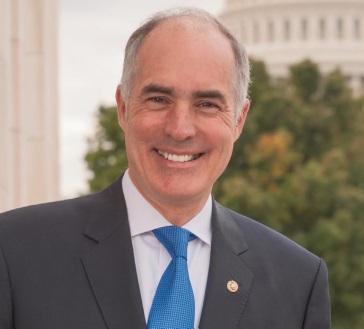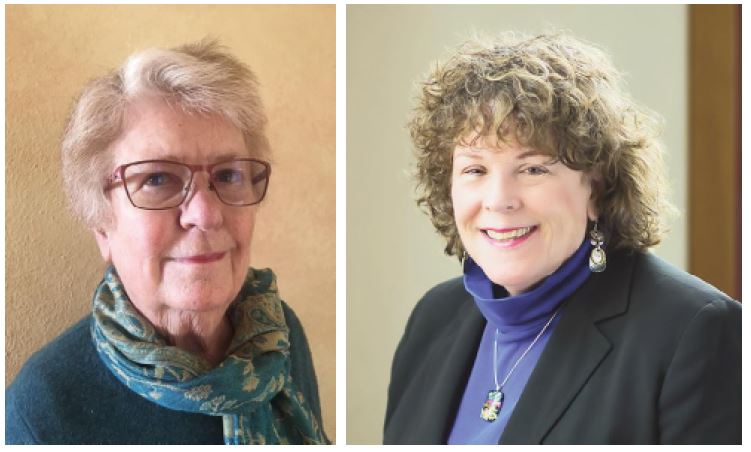ROBERT PATRICK (BOB) CASEY, JD, U.S. SENATOR
"The Americans with Disabilities Act affirmed the rights of people with disabilities: to be included in all aspects of American society, to be economically self-sufficient, to live independently, and to have an equal opportunity to pursue one's dreams.
But a declaration of rights without resources isn't enough. We must put in place the services and support for people with disabilities to exercise those rights. That means tearing down barriers to economic success like I did when I worked to pass the ABLE Act, which makes it possible for people to save for the future and not risk losing their federal disability benefits. It also means fighting to bolster home-based services during a pandemic so that people with disabilities aren't forced to live in congregate settings where they are more likely to be exposed to COVID.
In my role as senior U.S. Senator from Pennsylvania, I will always support the rights of people with disabilities and fight to ensure they have the resources necessary to make those rights a reality."

FIGHTING FOR FAMILIES: "I will always fight to ensure people with disabilities have the resources necessary to make their rights a reality."
United States Senator Robert Patrick (Bob) Casey, Jr. fights every day for Pennsylvania families. He is a strong advocate for policies that improve the health care and early learning of children and policies that will raise wages for the middle class. Senator Casey serves on four committees including the Senate Finance Committee, Senate HELP Committee and Senate Select Committee on Intelligence. He is also the Chairman of the Special Committee on Aging, where his agenda is focused on policies that support seniors and individuals with disabilities.
Senator Casey and his wife, Terese, live in Scranton and have four adult daughters.
GERALDINE (GERRI) COLLINS-BRIDE, RN, MS, ANP-BC, FAAN LUCY CRAIN, MD, MPH, FAAP
"Advocacy for people with special needs has been the focus of my career as a primary care clinician and educator. Very early in my graduate nurse practitioner training, I discovered the massive health inequities of people with developmental and psychiatric disabilities, both in the healthcare delivery system and in our educational training programs. It has been, and continues to be my mission to advocate for inclusion, quality and equity of healthcare for this population through mentoring, teaching and practice. Advocacy is a necessary and powerful tool for promoting change." (Gerri Collins-Bride)
Gerri Collins-Bride, RN, MS, ANP-BC, FAAN, is an adult nurse practitioner and Professor Emeritus in the University of California, San Francisco (UCSF) School of Nursing where she is the Co-director of the Adult Gerontology Primary Care Nurse Practitioner program. For over 35 years she has been practicing in General Internal Medicine at UCSF as a primary care provider for adults with developmental and psychiatric disabilities.
Ms. Collins-Bride is a founding member of the Redwood Coast Regional Center Telemedicine "TACT" team and for the past 20 years, has co-ed the annual CME course on "Developmental Disabilities: An Update for Health Professionals" with her partner and treasured colleague, Dr. Lucy Crain.
"As a pediatrician with a university-based primary care practice which welcomed children and youth with disabilities, I found the majority of my medical and pediatric colleagues inadequately informed about current diagnostic and resource needs of their patients with disabilities. It became my mission, in practice and after retirement, to
advocate for children and adults with disabilities and special needs and to fill in the gaps of pediatric training by providing continuing medical education (CME) of healthcare clinicians with an annual CME conference, now approaching its 21st year: Developmental Disabilities: Update for Health Professionals. The success of our interdisciplinary conference would not have been possible were it not for a terrific cochair (Gerri Collins-Bride, UCSF Adult Nurse Practitioner), dedicated parent advocates, self-advocates, and the Americans with Disabilities Act, all demanding informed respect and individualized support for people with disabilities." (Dr. Lucy Crain)

MISSION FOR INCLUSION: Lucy Crain, MD, MPH, FAAP (left) and Geraldine Collins-Bride, RN, MS, ANP-BC, FAAN (right).
Lucy Crain MD MPH FAAP, is Clinical Professor of Pediatrics Emerita at the University of California San Francisco; Adjunct Clinical Professor, Stanford University. Dr. Crain is originally from a small town in Kentucky and earned B.A. and M.D. degrees from the University of Kentucky. Moving to Seattle for pediatrics residency at the University of Washington was followed by a year of service at Presbyterian Hospital in Daegu, Korea, and an MPH at UC Berkeley before settling in San Francisco.
Dr. Crain practiced primary care and developmental pediatrics at UCSF for 30plus years, and another 10 years in the Child Development Clinic at Lucile Packard Children's Hospital at Stanford University. She and her husband have two grown children and two grandsons and have called San Francisco home for the past 50 years. A past member of the Board of Directors of the American Academy of Pediatrics, Dr. Crain remains actively involved in a number of local and national advocacy efforts for people with disabilities.